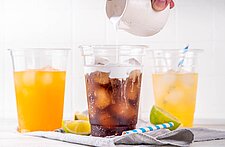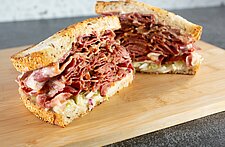 Trend Perspectives with Cynthia Maxwell
Trend Perspectives with Cynthia Maxwell
We well know that consumer demand is changing rapidly, and brand innovation is a must to stay competitive and attract the fickle consumer’s attention. Here is a look at a few companies that are taking product innovation to a new level.
CO-CREATION CONCEPTS
Co-creating products with consumers is not a brand new concept; it is just that companies are getting better at it. IKEA launched Co-Create IKEA in 2018, which includes working with entrepreneurs, and university students on product solutions and development, and asking customers for product ideas.
“We bring people together, either in real life or online, to tackle some of the latest projects we’re working on at IKEA” (ikeacocreation.com). Actual product variations and designs have come from these projects. If participant ideas are adopted, they are eligible for cash rewards. Projects include anything from creating a decorative Thanksgiving table line to a Comfort Chair for Young Urban Lifestyles. Some IKEA innovators can access test labs and prototype spaces to work on the completion of their suggested projects.
Beverage giant Coco-Cola and Kantar set out to co-create with consumers in Southeast Asia and discover specific tastes of the region. A popular local café was rented – fondly referred to by the team as the ‘Proto Lab on Wheels’ – Coke’s R&D team came prepared with a “kit of things that they can play with” while real consumers experienced the products.
The results of this experiment and loads of research resulted in the current stats placing Coca-Cola as the fastest-growing consumer goods brand in consumer reach point. One of the victories from this project came from understanding the consumer's lifestyle changes- the large size 2L Coke products were reduced to smaller packaged drinks. The smaller drinks suit the growing number of smaller sized Chinese families, as well as creating more personalized drinking habits for consumers in general.
RELATED: Brand Trends Arising From Pink October Solidarity MARKETING GENIUS
MARKETING GENIUS
Marketing new product innovation correctly is absolutely the best way to get the word out. I recently went from the Apple iPhone 6SPlus to the iPhone 11 and can’t say I’m thrilled with all the newness 11 features. I am a slow adaptor to some technology and decided to keep my 6S for music and email and use my 11 for the camera. After discussing this with a friend, he commented: “Do you think there is a market for purchasing a phone just for the camera?”
As silly as it sounds, in the December issue of Vogue, Google advertises its Google Pixel 4 as The Photographer’s Phone, “studio images without the studio.” In a stunning five-page spread featuring Annie Leibovitz’s work using the Google Pixel, it takes a minute to figure out what the spread is about—then you turn to page five and there it is-on a bold colored graphic background the Google Pixel 4. It certainly got my attention and I believe there is a consumer that will buy the Google Pixel 4 just for the phone.
RECYCLED REVOLUTION
I cannot go without mentioning companies that are making strides in sustainability. H&M has quite a list of awards and recognition in this area, including the Dow Jones Sustainability World Index reaching the highest possible score in the categories of Quality & Recall Management, Social Reporting, Environmental Reporting, and best industry score in Supply chain Management (hmgroup.com). They will continue down this path with pretty impressive goals for the future: Source 100% sustainable cotton by 2020 and 100% recycled or sustainably sourced materials by 2030-just to name few.
Second-hand clothing is a 24 billion dollar market in the US, and resale website thredUP is at the forefront of this trend that is only getting bigger. They recently launched Resale-as-Service (RaaS) for retailers to help integrate the resale and retail experience. Macy’s and JCPenney have already announced partnerships with thredUP. These partnerships can include consumers receiving store credit for selling second-hand goods, in-store resale pop up shops, and donation shipping labels. ![]() The white cocoa pulp that was previously used and discarded will now sweeten Nestle’s Cacao Fruit Chocolate. Nestle will go down as inventing the first 70% dark chocolate using the entire cocoa fruit and nothing else. This means no refined sugars. The chocolate will be launched in Japan in quarter three this year. Cacao Fruit Chocolate will be available in other countries next year. Here’s hoping we get this little chocolate wonder in the U.S.!
The white cocoa pulp that was previously used and discarded will now sweeten Nestle’s Cacao Fruit Chocolate. Nestle will go down as inventing the first 70% dark chocolate using the entire cocoa fruit and nothing else. This means no refined sugars. The chocolate will be launched in Japan in quarter three this year. Cacao Fruit Chocolate will be available in other countries next year. Here’s hoping we get this little chocolate wonder in the U.S.!
Ensure your brands are on the leading edge of innovation - subscribe to our weekly newsletter!






